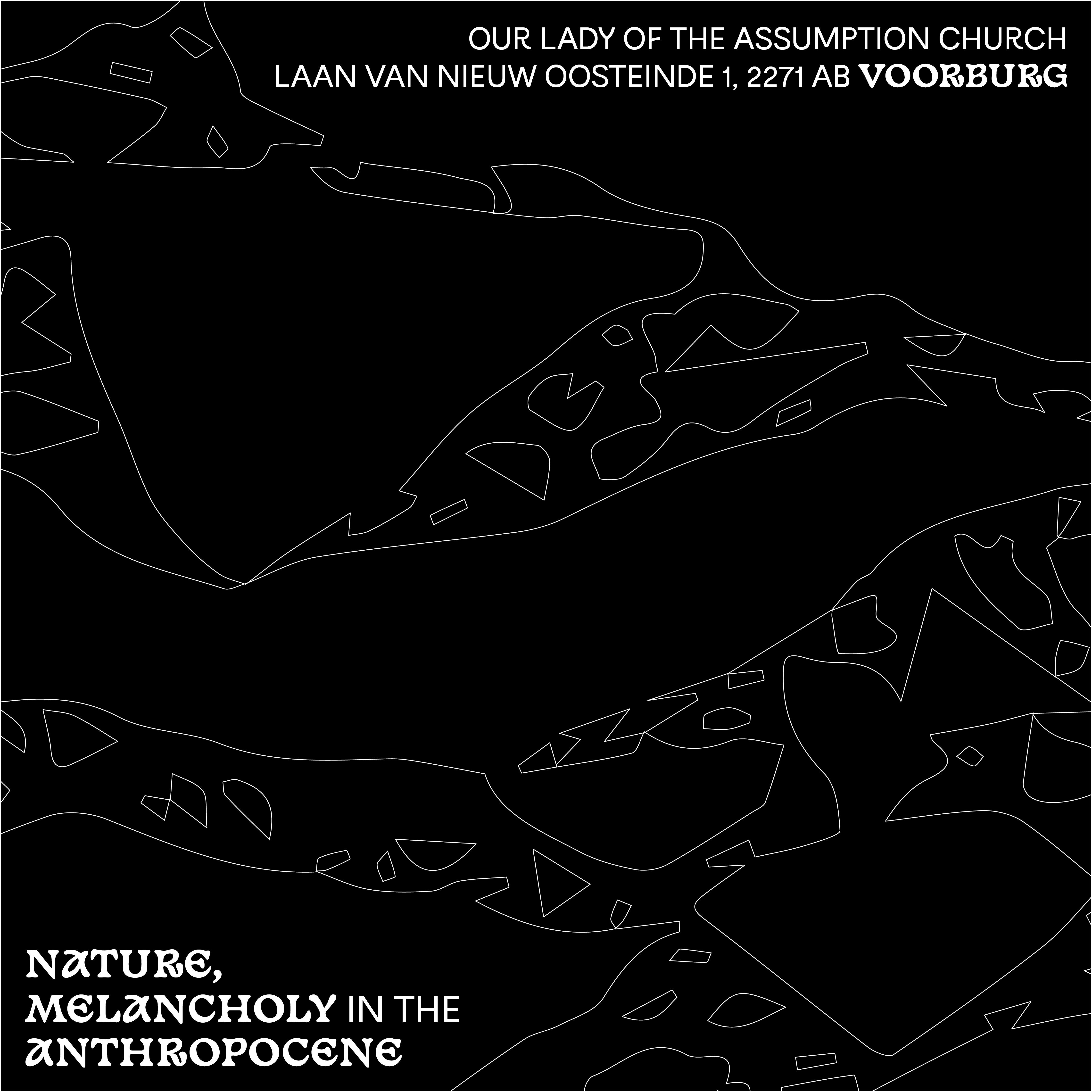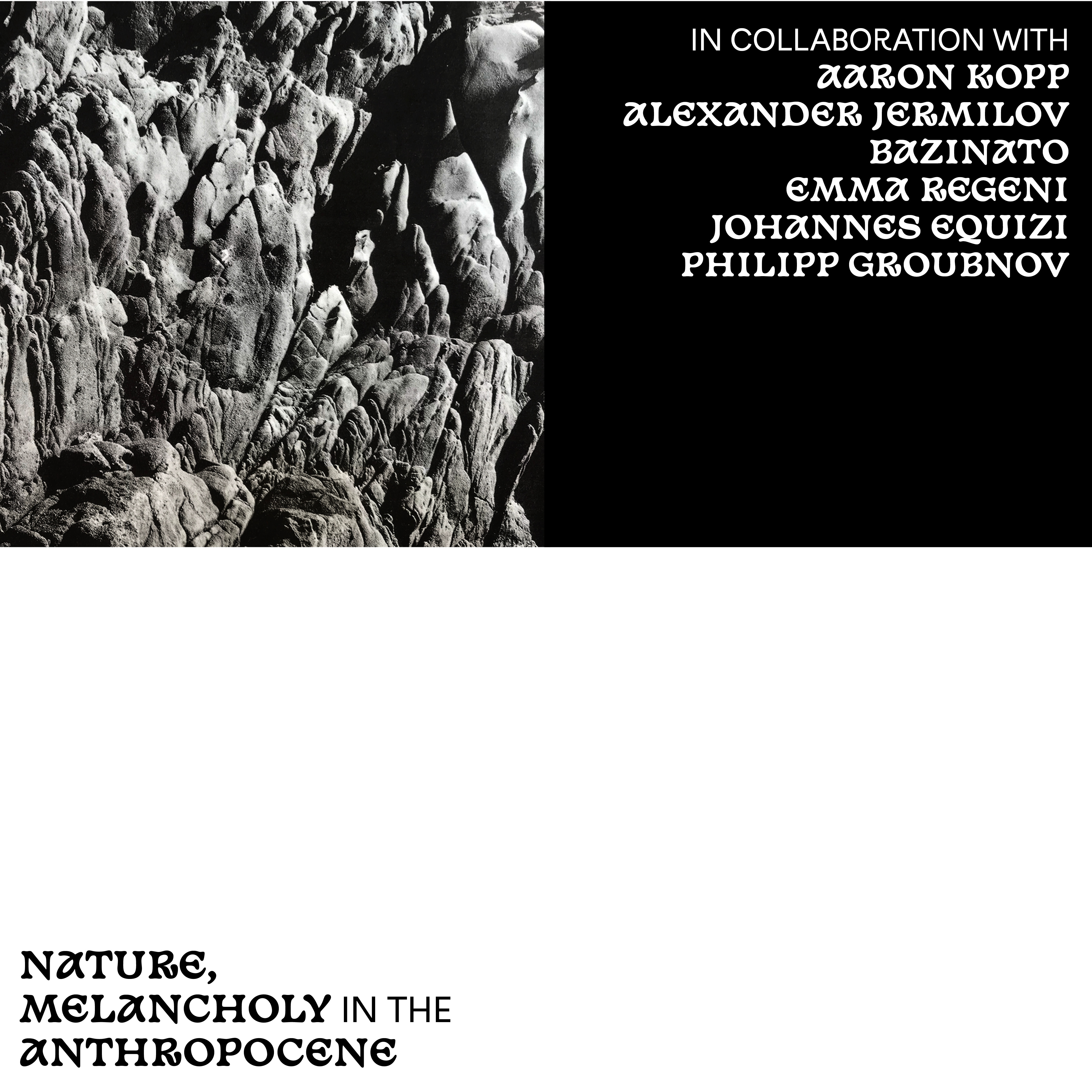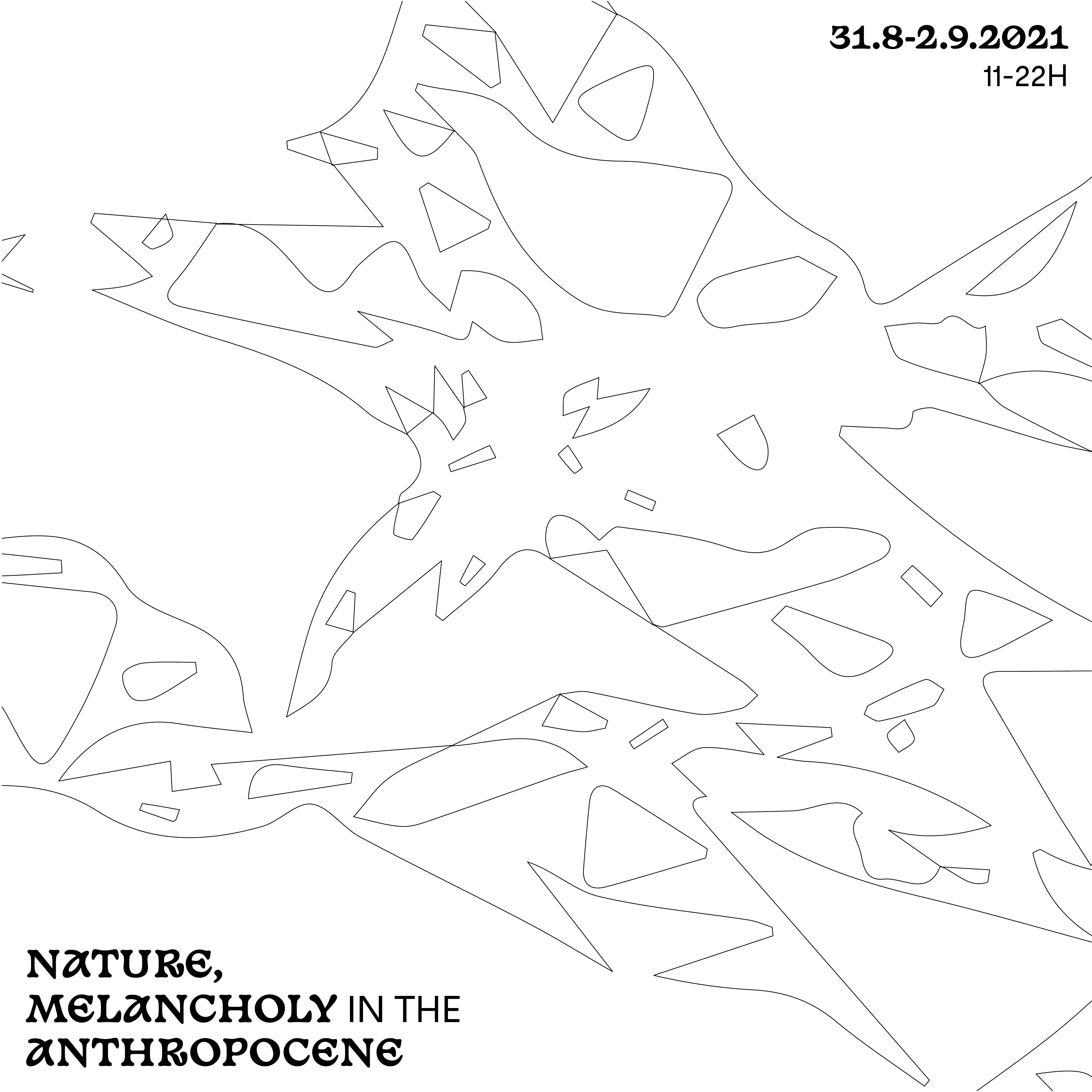““Humans are part and parcel of the great global common, which is the biosphere, the ecosystem of planet Earth. We have become the predominant species, insofar as an entirely new geological epoch has been named after ‘Man’: the Anthropocene. “ ”
Lieven de Cauter
‘Nature, Melancholy in the Anthropocene’ is the first exhibition of The Spectrum in the physical space and offers a synthesis of socio-political challenges of the Anthropocene through artistic imaginations and inspired by Lieven de Cauters publication, ‘Ending the Anthropocene.’ The visual artists Philipp Groubnov, Johannes Equizi, Aaron Kopp, Bazinato, Alexander Jermilov, and Emma Regeni, explore new ways of cohabitation, symbiosis with nature, and with one another, through existing and new works. In a time in which our current living patterns are reaching their limits, their works call us to end the time of extraction by questioning the current system and offering a glimpse into a better tomorrow. Their results build bridges of understanding and express the desire to change a world that often seems unchangeable for the individual.
While change is inevitable, we need to start living with the resources we have; living in the ruins of the Anthropocene means repurpose, change and transform existing resources, spaces, and systems to fit the needs of our time. With the “Our Lady of the Assumption Church” in Voorburg, we found a room that would embody this way of thinking. It felt just to invite the audience to a space for reconciliation and reconnecting with the more than human, in a relict from the past. Through this, the spatial configuration of the church became the departure point of the exhibition itself with its distinct features. A place left abandoned resonated with the feeling of melancholy itself that so many feel in today’s time.
“We must treat climate change as an immediate threat, just as we must treat the connected crises of nature and biodiversity loss, and pollution and waste, as immediate threats,” “ ”
Inger Andersen, Executive Director of UNEP, the United Nations Environment Program
The latest ICCP-report carried out that we need to change our behavior on this planet and our relation to the nature that surrounds us. We live in the Anthropocene, the geological time in which extraction and the influence of the human race is the main factor of change. We shape, change and destroy our ecosystems on a scale unknown to previous generations. The melancholy this brings about, on an individual as well as on a political level, could be called postmodern, even posthistorical: postmodernity was the end of the idea of progress and emancipation, posthistory then is history after history as progress, or even more: progress leading to the real end of history, of humankind, and of many species with it. But melancholy should not stop us; we should embrace the bipolarity of melancholy, its state of ecstasy, and the motivation it brings along to translate it into change, empowerment, and revolution.
While change is inevitable, we need to start living with the resources we have; living in the ruins of the Anthropocene means repurpose, change and transform existing resources, spaces, and systems to fit the needs of our time. With the “Our Lady of the Assumption Church” in Voorburg, we found a room that would embody this way of thinking. It felt just to invite the audience to a space for reconciliation and reconnecting with the more than human, in a relict from the past. Through this, the spatial configuration of the church became the departure point of the exhibition itself with its distinct features. A place left abandoned resonated with the feeling of melancholy itself that so many feel in today’s time.
EXHIBTING ARTISTS
Philipp Groubnov
Johannes Equizi
Aaron Kopp
Bazinato
Alexander Jermilov
Emma Regeni
PERFORMING ARTISTS
Bjarte Wildeman
Tingyi Jiang
Speaker
Lieven de Cauter
Lieven is a Belgian philosopher, art historian, writer, and activist. He teaches philosophy at the University of Leuven and RITCS (Royal Institute of Theatre, Cinema & Sound), Brussels. He published some dozen of books: on contemporary art, experience and modernity, and more recently on architecture, the city, and politics. Besides this, he published poems, philosophical columns, statements, pamphlets, and opinion pieces. As an activist, he initiated the BRussels Tribunal on the war in Iraq and is a co-founder of Platform for Liberty of Expression.


